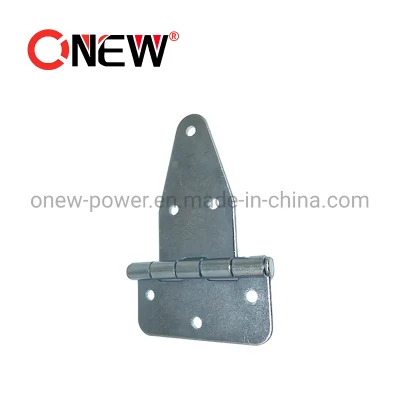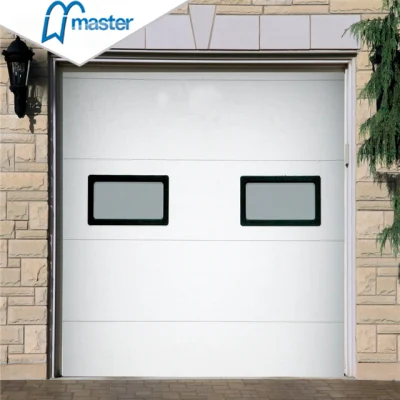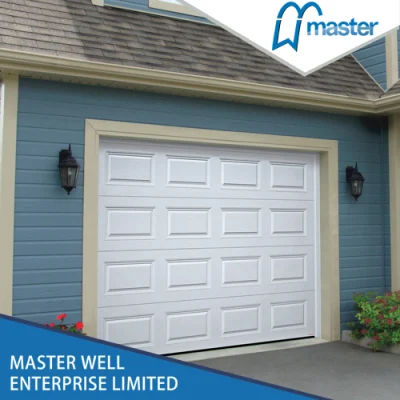- Overview
- Product Description
- Product Parameters
Basic Info.
Model NO.
SDM-10G32
Driving Type
Electromechanical
Electric Current Type
DC
Brand
Jutai
Working Voltage
DC24V Output
Max Output Current
10A
Fuse
AC220 20A
Remote Distance
More Than 30m
Working Temp
-25ºC to +75ºC
Max Gate Weight
1000kg
Power
130W
Output Torque
21n.M
Rotation Speed
12m/Min
Limit Switch
Magnetic(Nc/No) Spring
Noise
Less Than 50dB
Remote Control
2PCS Anti-Copy Rolling Code Remotes
Transport Package
Cartons
Specification
1unit package 36.5*36*24.8cm
Trademark
JUTAI
Origin
Shenzhen
HS Code
8530800000
Production Capacity
20200/Year
Packaging & Delivery
Package Size
36.50cm * 36.50cm * 24.80cm
Package Gross Weight
13.800kg
Lead Time
3 days (1 - 1 Pieces)
5 days (2 - 30 Pieces)
7 days (31 - 50 Pieces)
To be negotiated ( > 50 Pieces)
5 days (2 - 30 Pieces)
7 days (31 - 50 Pieces)
To be negotiated ( > 50 Pieces)
Product Description
In order to make the installation and configuration easier, we have developed this intelligent one button learning sliding door control board. The control board adopts advanced microcomputer chip, digital control, more practical functions, higher safety performance, easier installation and configuration. Fully compatible with the smartphone app network (WiFi/3G/4G/5G) control and bluetooth control and many other features.

Features
1. Anti-rush design.
At the first operation after each power on, the motor runs in slow motion to the limit point throughout the process to avoid rushing out of the limit. When the door reaches the limit point, the motor can only be operated by pressing the button of the opposite direction to prevent the limit from being broken out. (Notice: It has the power off protection function when in place, and the motor only moves in the opposite direction when repowered).
2. Master-slave mode available.
Two motors with the same control board on each can work synchronously. In this mode, infrared, ground sense, automatic door close and other functions are synchronized. Attention: Infrared, ground sense must be connected to the master motor.
3. Motor runtime protection.
To prevent the motor from running during the travel failure, the control board will automatically learn the motor running time without manual setting, and 10s will be added automatically as the time margin.
4. Auto-close function.
Time can be set from 1s to 250s before the door closes automatically. The default value is 3s.
5. Soft start and slow stop.
There're soft start and slow stop features available. The distance and speed of the slow stop feature can be adjusted.
6. Stop & rebound against resistance.
Switchable between stop against resistance and rebound against resistance for the closing travel. Stop against resistance for the opening travle.
7. Onboard socket for bluetooth module.
A socket is integrated onboard for the insertion of the standalone bluetooth module (module not included by default).
8. One button configuration for internet control.
Can be directly paired with the internet controllers through pressing one button onboard, no copy procedure is required.

| 1. Working voltage: | AC220V/110V ± 10% input, DC 24V output. |
| 2. Maximum Output Current: | 10A. |
| 3. Fuse: | AC220V 20A. |
| 4. Remote control distance: | Over 30 meters in open area. |
| 5. Ambient temperature range: | -25°~+75° |
| 6. Relative humidity: | <60%, NO CONDENSATION. |
Specifications
1. Working voltage: AC220V/110V ± 10% input, DC 24V output.
2. Maximum Output Current: 10A.
3. Fuse: AC220V 20A.
4. Remote control distance: Over 30 meters in open area.
5. Ambient temperature range: -25°~+75°.
6. Relative humidity: <60%, NO CONDENSATION.

Diagram
Configuration IntroductionDip Switch1: Remote Control One-key and Four-key Modes Switch
OFF position
Remote control with four independent keys functioning as Open, Close, Stop, Lock.When in the non-passageway mode, after pressing the Lock key, the Stop key needs to be pressed in prior to being able to operate.

ON position
(1) A single key on the remote is the one-key control key (The specific key pressed while pairing).
(2) Each key on the remote is a one-key control key.
Function setting
Turn and only turn 1 and 6 to ON, press SET once with a buzzer is the single key one-key mode, press again with 4 buzzers is the 4 keys one-key mode. Turn 6 to OFF after setting.
Dip Switch 2: Passageway Mode OFF PositionDisable the passageway mode. ON PositionEnable the passageway mode (1 at OFF, 2 at ON).
When the gate is closed at the limit position, press the Lock key will make the motor run in the opening motion for 6s.
Dip Switch 3: Auto-close OFF PositionDisable the auto-close function.
ON Position
Enable the auto-close funciton. Only when the gate is opened at the limit position will the countdown starts, then the gate will automatically close to the limit position.
Auto-close timer setting
Turn and only turn 3 and 6 to ON, each press on the SET key is 1s, set it as long as you
wish up to 250s. After setting, turn 6 to OFF.
Dip Switch 4: Slow Stop OFF PositionDisable the slow stop function. ON PositionEnable the slow stop function (Effective only after travel distance learning).
The speed of Slow Stop can be adjusted with the MT adjustor, turn it clockwise to gain the speed, turn it anti-clockwise to reduce the speed.
The distance of Slow Stop can be adjusted with the TIME adjustor, turn it clockwise to gain the distance, turn it anti-clockwise to reduce the distance.
Travel Distance Learning
Turn and only turn 4 and 6 to ON, then hold down the ONE key until the gate starts running auomatically and release. It will close to the limit and open to the limit, and close to the limit again with the slow stop effect. After 2 beeps, the travel distance learning procedure is complete.
Dip Switch 5: Startup Strength
OFF Position
Enable the slow start function. The gate runs at a slower speed for the first 2s, to reduce the tremble of the gate.
ON PositionMax start speed. The gate runs at the maximum speed from the very beginning.Dip Switch 6: Setting Key OFF PositionMake the settings take effect.
ON Position
Enable the setting mode for the One-key function, Auto-close function and Slow Stopfunctions. When the settings are set, turn this key to OFF to take effect.
Dip Switch 7: Resistance Stop & Rebound OFF PositionThe gate stops when running to either open or close.
ON Position
The gate stops against resistance when running to open. When running to close, the gate stops against resistance for 1s and then rebound.
Optimized resistance rebound adjustment
Make sure the motor functions properly. Turn on dip switch 7, then while the motor is in the motion of closing, rotate the FORCE adjustor anticlockwise to allow the door stops and return automatically, this is the threshold of the resistance force, it's suggested to rotate the adjustor clockwise a little bit to set it as the final resistance force.
Dip Switch 8: Motor Rotation Direction Swap Swap this switch to reverse the rotation direction of the gear.Blue Dip Switch 1: Normally Closed/Open OFF PositionSet the motor status to normally open. ON PositionSet the motor status to normally closed.Blue Dip Switch 2: Master-slave Mode OFF PostionSet the current motor as the master motor. ON PositionSet the current motor as the slave motor.
Master-slave mode means 2 motors with the same control board installed on each work synchronously when the master motor is being operated. Connect 2 motors through the 485A+Binterfaces on both motors in parallel to realize the master-slave mode.

Remote Control Paring And DeletionPairing
Hold down the STUDY button on the control board for about 1s until a buzz, then hold down any key of the remote control, release it against a buzz, and the pairing procedure is complete. Repeat this step to pair more remotes. Up to 120 remotes can be paired with a single board.
Deletion
Hold down the STUDY button on the control board for about 7s, release it against 3 continuous buzzesto delete all paired remotes.
P.S.: After entering the pairing state, if no effective RF signal is sensed, the board will exit the pairing state automatically with a buzz and the LED returning to always on.

Gatelink Roling Code Learning Method
▪ Remote Without Locked Type (Button No Function).
▪ Press and hold the "Learn/Delete" button on the GateLink receiving board for about 1 second,the indicator will turn off,can hear the buzzer give a "didi"sound,to remind the user release the button,and then enter into remote learning type, press and hold the remote transponder any button(open/close/stop),release it after heard the buzzer give"didi"sound again,learning finished.

Remote With Locked Type (Button With Function)
▪ Press and hold the "Learn/Delete" button on the GateLink receiving board for about 1 second,the indicator will turn off,can hear the buzzer give a "didi"sound,to remind the user release the button,and then enter into remote learning type,press and hold the "Lock" button, release it after heard the buzzer give"didi"sound again,learning finished;
▪ If choosed the wrong mode, you can re-learn again. Repeat this step to learn multiple remote transponder, and the regular version can store up to 64 GateLink ID; (256 Gatelink ID can be optional also).

UNDER-V Indicator
1. When the voltage of the battery is in between 19 ~ 20V, the UNDER-V indicator is always on.2. When the voltage of the battery is lower than 19V, the UNDER-V indicator flashes constantly, the board enters the under-voltage state and will not carry out the motions of neither opening nor closing.BLE Indicator
1. When the bluetooth module is not bound, the BLE indicator flashes once per second constantly.
2. After binding, the BLE indicator flashes once per second when linked with the mobile app, and goes off when the app is quit.3. After holding down the BLE key for 5s to reset the bluetooth feature, the BLE indicator will stay on.Charge Indicator
1. When charging, the red LED is always on.
2. The red LED goes off after full charged.
Photocell Indicator
When triggered, the corresponding red LED is on, otherwise it stays off.
Stop Indicator
When triggered, the corresponding red LED is on, otherwise it stays off.
Manual Button Indicator
When triggered, the corresponding red LED is on, otherwise it stays off.
Closing Indicator
When triggered, the corresponding yellow LED is on, otherwise it stays off.
Opening Indicator
When triggered, the corresponding green LED is on, otherwise it stays off.
Loop Indicator
When triggered, the corresponding red LED is on, otherwise it stays off.
Closed Limiter Indicator
When the gate is closed at the limit position, the corresponding LED stays on, otherwise it's off.
Open Limiter Indicator
When the gate is open at the limit position, the corresponding LED stays on, otherwise it's off.

Buzzer Introduction
1. A buzz occurs each time a dip switch is dipped.
2. When in the unlocked status under the Lock mode, a buzz occurs when the LOCK button on the remote is pressed indicating the remote is locked. When in the locked statuse, press the STOP button on the remote causes 2 buzzes, and the remote is unlocked.
3. When both limit swithes are triggered at the same time, the buzzer keeps buzzing and the motor cannot be operated by any button, in this case the height of the magnet should be adjusted.
4. When the gate is at the open/closed limit position, if the open/close button on the remote is pressed, 3 continuous buzzes occur and no reaction happens.
5. Stop against resistance when opening will cause 3 continuous buzzes, stop/rebound against resistance when closing will cause 5 continuous buzzes.

Magnetic Limit Switch Installation Guide
Move the gate to the ideal closed position, fix the magnet on the gear rack at the spot where the limit switch box is located and make sure the magnet is facing to the box. Do the same with another magnet for the open position at the other end of the racks. Make sure the magnet on the left is higher and the one on the right is lower. When at a certain limit position, the corresponding LED indicator on the board will stays on. If the 2 indicators are on at the same time along with a constant buzz, the height of the magnet needs to be adjusted.

M-S Mode (Double Machines Synchronized) Setup GuideConnection
1. Turn the Master/Slave dip switch to ON on the master motor. Leave the switch at OFF on the slave motor.
2. Connect the A+ B- interfaces on the master motor to the corresponding interfaces on the slave motor.
After connecting, if the RUN indicators on both master and slave motors flashes synchronouly once per second, it's properly set. Otherwise, check the wire connection or the status of the dip switches.Functions1. When the M-S mode is successfully set, the remotes paired with the slave motor and the Manual button, Study/Delete button on the slave motor are all out of function as well as the Open, Stop, Close functions of any external control devices connected with the slave motor.2. When operating the remotes paired with the master motor, and the Manual button, Study/Delete button on the master motor as well as the Open, Stop, Close functions of any external control devicesconnected with the master motor, the slave motor will carry out the same operations.3. The resistance stop/rebound function, photocell function, loop function on both motors can be triggered from either motor and carry out the corresponding function on the other at the same time.4. The auto-close function of the slave motor is overwritten by the master motor, if this function is supposed to be used, turn the AUTO CLOSE dip switch to ON on the master motor.5. The low speed rate and resistance force can be set on each motor separately.6. The limit function on each motor works separately, it is to be set on either motor before linking.

















